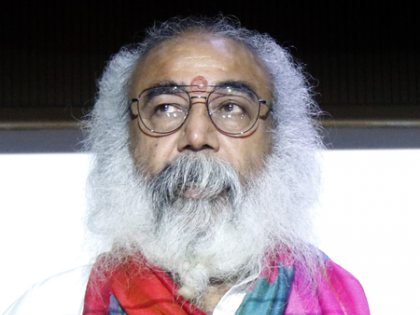Emergency still exists within Congress: Acharya Pramod Krishnam
By IANS | Updated: June 25, 2025 18:38 IST2025-06-25T18:34:07+5:302025-06-25T18:38:42+5:30
Ghaziabad, June 25 As the nation marks 50 years since the declaration of the Emergency, spiritual leader Acharya ...

Emergency still exists within Congress: Acharya Pramod Krishnam
Ghaziabad, June 25 As the nation marks 50 years since the declaration of the Emergency, spiritual leader Acharya Pramod Krishnam on Wednesday stirred fresh political debate by claiming that while the Emergency may no longer exist in the country, it still prevails within the Congress party.
Speaking to IANS, Acharya Pramod Krishnam said: “There is no scope for imposing Emergency in a democracy. While democracy exists in the country today, an Emergency is still being imposed within Congress. If anyone speaks about Rahul Gandhi, they become a victim of this internal Emergency.”
He emphasised that true democratic practices—such as putting up posters, giving statements, delivering speeches, and holding rallies—are hallmarks of a vibrant democracy.
“This is nothing new; this is democracy. But in Congress, the Emergency mentality continues,” he said.
Reflecting on the Emergency imposed in 1975, Acharya Pramod said, “That was a decision taken by the government at the time. The world knows why it was imposed, how it was imposed, and how it was executed. Every year, debates are held on whose interests were protected and whose rights were crushed. There is no need to elaborate further—every child in the country knows why the Emergency was imposed.”
On this day, June 25, 1975, India entered one of the most controversial and authoritarian phases in its democratic history. Then, Prime Minister Indira Gandhi declared a national Emergency, citing internal disturbances. Civil liberties were suspended, press freedom was curbed, and thousands of political leaders and activists were jailed without trial. The Emergency remained in effect for 21 months, ending on March 21, 1977.
It was the third national Emergency declared in India, after the first in 1962 during the war with China and the second in 1971 amid the Indo-Pak war.
The decision came in the wake of widespread protests, rising inflation, unemployment, and a critical court verdict by Justice Jagmohanlal Sinha of the Allahabad High Court.
On June 12, 1975, he found Indira Gandhi guilty of electoral malpractice, disqualifying her from office for six years—an event widely seen as the trigger for the Emergency.
Disclaimer: This post has been auto-published from an agency feed without any modifications to the text and has not been reviewed by an editor
Open in app